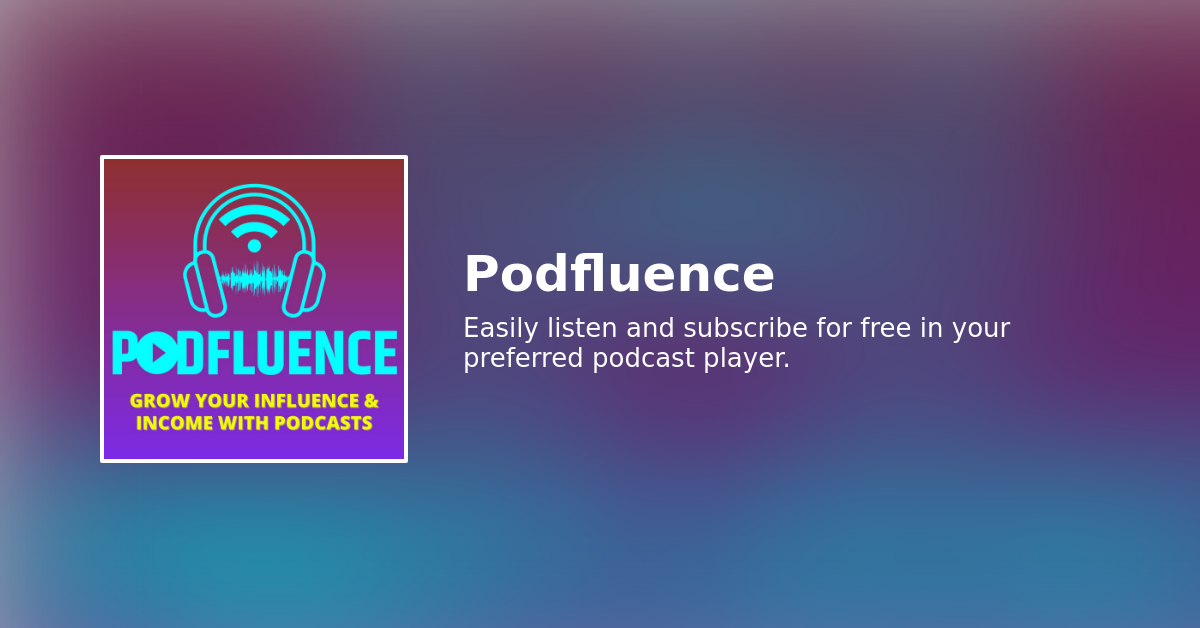
Do you ever get that thing where you go to another room to get something and by the time you get there you’ve forgotten what you went there for? I know it’s not just me, but have you ever been interviewed as a podcast guest and got the feeling you’ve forgotten something?
I’ve certainly done this as a podcast host but more recently realised I’ve been doing this as a podcast guest too. Allow me to explain… Most podcasters with shows like mine are not podcasting as their full-time gig and are not running their shows at a profit. Because of this, we just don’t have the time to do the amount of research and preparation we would prefer to do for their show, nor do we have the means to delegate that work to someone else.
There are those who think that this adds to the magic and mystery of your show, that you are finding things out at the same time as your guests, although not in real time. I’d argue that you’re not adding magic but rather missing out on opportunities. As a podcast host, I know that the best shows I’ve recorded with guests have been the ones I’ve prepared for the most. As a podcast guest, I’ve mostly failed to go further than scheduling a time and showing up.
Preparation was one of our 3 Ps in last week’s newsletter & podcast, so I don’t just want to tread the same ground. Last week I offered some simple preparation actions for being a podcast guest. This time I want to talk to you about why it matters and why it’s only going to work with a particular approach to podcast guesting.
I must give a big shout-out to the wonderful Christine McAlister who I had the privilege of recording a podcast episode with last week and who I think rightfully deserves her title as the queen of podcast guesting, although I did warn her I was coming for the title and the accompanying tiara. What I’ll share with you here is only a fraction of the gold from that conversation which is coming soon mixed with some elements of my latest podcast episode with Simone Sauter and some of my own thoughts on the topic.
If you’re a regular reader, unpreparedness is number 6 on our 7 Deadly Sins of Podcasting:
Gluttony/Self-indulgence
Selfishness
Ignorance/lack of awareness
Vanity
Inconsistency/Unreliability
Unpreparedness
?
What does everyone else do?
Most people who appear as guests on podcasts probably think along the lines of “why do I need to prepare? I’m going to be asked about myself and my area of expertise and I know plenty about those.” It’s not wrong, it’s just standard practice rather than best practice. Let’s not get into the guests who turn up to give a presentation or a soliloquy, and I’ll assume you already know that’s the worst (even if that’s because I just told you it is.)
Here’s the thing, if you’re doing quantity over quality and saying yes to pretty much any show that invites you on or that you can find, you’re not going to realistically have the time to research each and every show effectively. Will you get results from that? Probably some but nothing like what you could be getting by being more strategic and aiming for quality over quantity.
Is it a numbers game?
It’s an age-old argument and I’m sure many will continue to treat podcast guesting as a numbers game. I think it’s fair to compare the ‘spray & pray’ strategy with those guys who learn seduction techniques so they can get laid as much as possible (I’m unaware of any women ever doing this but open to correction). They’ll play the numbers game and they’ll probably get laid a whole bunch but it’s not really a worthy goal and for the most part, it will not help to develop long-term relationship prospects.
Part of the problem is that it’s transactional and superficial. It provides that hit of instant gratification but emotionally it’s like a doughnut; enjoyable at the time but empty calories with no nutritional value or long-term benefit. It reveals that their main consideration is their own satisfaction and their interest only goes as far as it can serve their objective.
Some podcasters may hate me for saying this but as a guest, you’re generally far better off being more strategic in your appearances (ie. quality>quantity), with some exceptions. If you’re just getting started, go for quantity to get your reps in with smaller and newer shows where you’ll probably feel more relaxed and it will matter less if things don’t go well.
How will you know when you’re ready for a more qualified approach?
In the latest Podfluence episode with Simone Sauter, she says that there are some things you need to have in place to do this: you must know what you’re about, you must have 2-4 key talking points, you need to have a way to collect emails and a clear understanding of the genre of shows you need to apply to. There are more details in the episode, which I’ll link to at the end.
Appearing on prestigious podcasts or magazines can be great for brand growth but you need to be able to come across well. People say you can use this strategy to become a thought leader, but that’s really going to depend on how we define thought leadership. You can certainly use it to become a known person in your industry and a trusted voice of authority, which is probably reason enough to do it.
Most of your podcast appearances are going to be evergreen unless the podcast feed gets taken down at some point. Potentially, your interviews could be available online forever, which means you’re potentially getting way more back than you may have put it. It’s worth putting some effort into something that is likely going to be available for a long time to point people in your direction.
Do you feel good when someone publicly sings your praises? Of course you do! If you’ve found a show you like, write a little about why you like it. Leave a review for the show about something you liked. Write articles, create videos or whatever you feel like based on their content and tag them when you share it. If you’re already connected, that’s easier to do but find a way because reciprocity is a powerful force and a great relationship builder.
These days, I mostly only accept guest pitches when they give me a good episode topic and pitch for why they are the best person to speak with about it. They’ve done my host work for me and saved me a load of energy in finding, researching and generating ideas for guest content. If you can see a gap in the topics of the show that you can fill or add a unique perspective to, you have your pitch.
There are so many things you could prepare and as I pointed out last time, even doing some basic prep will set you above the crowd. Being willing to go the extra mile here is going to help you get on bigger shows with bigger audiences. Some of my recent wins in this area are being invited to be a speaker at an online summit and receiving several new client enquiries in the last week just from one recent interview. Depending on what you offer, client lead generation and paid speaking offers are common occurrences and the more you do, the more you get.
I wonder what your thoughts are from reading this newsletter? Are you inspired to action or are you planning to think about it? Where are you in your podcast guest journey? If you’re not clear on your niche and offer, work on that this week. If you’ve not been on a podcast yet, work on that and find a show to go on. If you have, listen back to your last interview and see what you notice.
Whichever stage you’re at, take a listen to the latest episode of Podfluence about How to get featured in prestigious magazines and podcasts with Simone Sauter.

